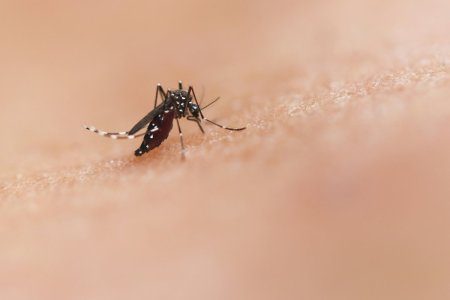Protect Your Wallet: The New Sneaky Scam Fraudsters Use to Pose as Government Officials!
By
Aubrey Razon
- Replies 1
In an era where trust in institutions is paramount, the last thing you'd expect is for that trust to be exploited. Yet, that's precisely what's happening as fraudsters sharpen their tools in the art of deception.
The latest con? Impersonating government officials to swindle your hard-earned cash.
The U.S. Cybersecurity and Infrastructure Security Agency (CISA) has sounded the alarm on a sophisticated scam where fraudsters pose as government officials.
These impostors are not just after your personal information; they're directly targeting your wallet. They may contact you with a request to wire money, send cash, use cryptocurrency, or purchase gift cards–all under the guise of an urgent or official matter.
The CISA, a division of the U.S. Department of Homeland Security, is tasked with protecting the nation's cyber and physical infrastructure. When they issue a warning, it's not to be taken lightly.
Their notice emphasizes that while the CISA staff may reach out with important notifications, they will never ask for money or instruct you to keep the conversation secret.
This scam is not limited to the CISA. Other government entities, such as the Central Intelligence Agency (CIA) and Federal Trade Commission (FTC), have also been mimicked by these scammers.
The impact is staggering: Americans lost over a billion dollars to business and government agency impersonation scams in 2023, with older Americans being prime targets. The FBI’s Internet Crime Complaint Center (IC3) reports that individuals over 60 lost nearly $770 million to tech support and government impersonation scams.
To fortify your defenses against these impersonation scams, consider the following strategies:
1. Stay Informed: Knowledge is power. Keep abreast of the latest scam trends by reading reputable news sources and subscribing to our daily newsletter.
2. Just Say No to Money Requests: Remember, legitimate government agencies will never ask you to wire money or pay with gift cards or cryptocurrency.
3. Scrub Your Digital Footprint: Consider using data removal services to reduce the amount of personal information available about you online.
4. Question Caller ID: Scammers can fake caller IDs to appear as if they're calling from a real government agency. Always verify the authenticity of the call. In a similar story, check how you can avoid receiving spam or other unwanted calls.
5. Monitor for Identity Theft: Enroll in identity theft monitoring services to receive alerts if your personal information is compromised.
6. Be Wary of Links and Downloads: Avoid clicking on links or downloading attachments from unknown sources, and ensure you have robust antivirus protection on all your devices.
The sophistication of these scams can be unnerving, but staying calm and informed is your best defense. If you receive a suspicious call, do not engage or transfer money. Instead, hang up, verify the number, and report it to law enforcement if necessary.

Have you or someone you know encountered a government impersonation scam? What steps did you take to protect yourself? Share your experiences and tips in the comments below.
The latest con? Impersonating government officials to swindle your hard-earned cash.
Understanding the Threat
The U.S. Cybersecurity and Infrastructure Security Agency (CISA) has sounded the alarm on a sophisticated scam where fraudsters pose as government officials.
These impostors are not just after your personal information; they're directly targeting your wallet. They may contact you with a request to wire money, send cash, use cryptocurrency, or purchase gift cards–all under the guise of an urgent or official matter.
The CISA, a division of the U.S. Department of Homeland Security, is tasked with protecting the nation's cyber and physical infrastructure. When they issue a warning, it's not to be taken lightly.
Their notice emphasizes that while the CISA staff may reach out with important notifications, they will never ask for money or instruct you to keep the conversation secret.
The Impersonation Epidemic
This scam is not limited to the CISA. Other government entities, such as the Central Intelligence Agency (CIA) and Federal Trade Commission (FTC), have also been mimicked by these scammers.
The impact is staggering: Americans lost over a billion dollars to business and government agency impersonation scams in 2023, with older Americans being prime targets. The FBI’s Internet Crime Complaint Center (IC3) reports that individuals over 60 lost nearly $770 million to tech support and government impersonation scams.
Six Steps to Shield Yourself
To fortify your defenses against these impersonation scams, consider the following strategies:
1. Stay Informed: Knowledge is power. Keep abreast of the latest scam trends by reading reputable news sources and subscribing to our daily newsletter.
2. Just Say No to Money Requests: Remember, legitimate government agencies will never ask you to wire money or pay with gift cards or cryptocurrency.
3. Scrub Your Digital Footprint: Consider using data removal services to reduce the amount of personal information available about you online.
4. Question Caller ID: Scammers can fake caller IDs to appear as if they're calling from a real government agency. Always verify the authenticity of the call. In a similar story, check how you can avoid receiving spam or other unwanted calls.
5. Monitor for Identity Theft: Enroll in identity theft monitoring services to receive alerts if your personal information is compromised.
6. Be Wary of Links and Downloads: Avoid clicking on links or downloading attachments from unknown sources, and ensure you have robust antivirus protection on all your devices.
The sophistication of these scams can be unnerving, but staying calm and informed is your best defense. If you receive a suspicious call, do not engage or transfer money. Instead, hang up, verify the number, and report it to law enforcement if necessary.
Key Takeaways
- Scammers are posing as government officials, such as those from the U.S. Cybersecurity and Infrastructure Security Agency (CISA), to commit fraud and steal money through impersonation scams.
- Americans lost over a billion dollars in 2023 due to such scams, with older Americans being the most targeted group given their vulnerability to tech support scams and government impersonation.
- To protect against impersonation scams, never send money via wire transfer, gift cards, or cryptocurrency if requested by someone claiming to be from the government, as well as using data removal services to make personal information less accessible online.
- Consider exploring several measures to increase personal security, including staying informed about scams, questioning caller ID legitimacy, using identity theft monitoring services, and installing robust antivirus protection on all devices.
Have you or someone you know encountered a government impersonation scam? What steps did you take to protect yourself? Share your experiences and tips in the comments below.







